Cloud Computing vs. On-site Server: Which is Better?
With more and more businesses moving to the cloud (for good reason), it’s important for greater Milwaukee area business owners and managers to educate themselves on the differences between on-site and cloud computing so they don’t get stuck in the ‘digital stone age’.
What is Cloud Computing?
Cloud computing offers businesses a beneficial way to back up and access their data via a software interface.
Instead of storing and accessing data on your own servers, storing your data “in the cloud” means you are using software and services that are run via the Internet.
Cloud computing helps provide secure data storage, a benefit especially important to BYOD companies that allow their employees to bring their own devices.

Our IT support and services have been rated 5 / 5 based on 10 testimonials from our clients.
Integrated cloud services
What is Microsoft Azure?
Microsoft Azure is a growing collection of integrated cloud services that make it possible for businesses to move faster, achieve more, and save money. Relatively new to the market, the Microsoft Azure cloud computing platform is particularly helpful for businesses with:
- Aging hardware and/or no dedicated IT staff
- Limited office space – whether you don’t plan to upgrade your office space or you’re looking to downgrade your workspace
- Limited physical office space due to expected growth in remote employees and no desire to increase server size
- Server(s) in need of replacement (Request an Azure quote to compare cloud costs versus hardware costs. Labor costs are similar for on-site and cloud projects.)
What Does On-Site Server Storage/Backup Mean?
As the name indicates, the reference to “on-site” means businesses store data on servers housed on their own premises. On-site servers can be managed by an in-house IT department or an outside IT support provider.
PROS & CONS: Move to the Cloud or Keep Data On-Site?

In the midst of debating whether your business should move to the cloud?
A quick look the pros and cons of on-site servers versus cloud servers is a great way to put these two distinct options into perspective.
Have a look and see which option appeals to your current and future business needs:
On-Site Server
- Pros: physical closeness to stored data, hardware access/upgrade capabilities, fixed costs
- Cons: expensive to scale, more office space required, hardware failure/data loss, manual maintenance, high-priced power + cooling consumption.
Moving to the Cloud
- Pros: easy to scale, no office space required, global access to data, 24/7 server monitoring, inexpensive startup costs, file sharing capabilities
- Cons: ongoing fees, initial deployment time/data transfer
Which Option is Right for Your Business?
If you answer “yes” to the following two questions, your business can benefit greatly from the cloud.
- Are there compliance regulations we have to follow, i.e. HIPAA compliance?
- Do our employees work remotely (requiring data access from multiple locations)?
The type of cloud service you choose will ultimately depend on a number of criteria – from compliance restrictions to security, uptime requirements and more.
Ontech specializes in working with businesses who have 10-250 users. Due to the wide variety of clients we work with, our solutions are flexible and customized to meet your current needs and future growth plans.
There are varying levels of encryption and security available for cloud storage and backup. We encourage you to contact us with questions by phone at 262-522-8560 or online to find the best cloud solution for your business.
SECURITY: On-Site Server vs. Cloud Server
Evaluating server security is crucial when choosing between on-site and cloud servers.
Did you know encrypted data in the cloud is often safer than data stored on-site due to factors like unauthorized access to physical servers or building security breaches?
Businesses assume because they have firewalls and antivirus systems in place, that their network is secure, when in reality, they’re needlessly putting themselves at risk – without even realizing it.
Here’s how this is possible…
- Is your workplace BYOD friendly? Do you have a MDM solution and policy in place?
- Could disgruntled former employees gain access to sensitive company files?
- Do you have precautionary measures put into place to prevent data theft or malicious activity within your network?
If the answer to the above questions is “no”, there’s no doubt about it, your business IS at risk.
When it comes to cloud service providers, data security is a top priority and the reality is, the paranoia of cyber threats far outweighs the chances of an actual data breach, particularly compared to the security (or lack thereof) of a typical small to mid-size business network.
Cloud Services from Microsoft Azure
While there are many cloud services providers available, many businesses don’t entirely understand their comprehensive set of service offerings.
What Azure is and What They Offer – At a Glance
Microsoft Azure cloud services offer a platform as a service (PaaS) to help businesses grow their organization. Azure hybrid cloud solutions gives you more IT options, with less complexity and cost. Available for mobile and web applications, Microsoft Azure cloud service features include, but are not limited to:
- Multiple deployment environments
- Remote access to servers
- Automatic operating system management/updates
- Platform switching i.e. moving from 32-bit to 64-bit
- Access to additional services like SQL database, Service Bus, add-on storage
- Multi-tier hosting architecture
- MySQL as a Service support
- ASP.NET, ASP, PHP, Python, and Node.js support
- SSL support
- Remote debugging
- Visual Studio integration
How Can Microsoft Azure Help Your Business?
The Microsoft Azure Cloud PaaS offers a number of powerful cloud computing benefits for businesses such as:
Scalability: The Microsoft Azure cloud platform means you scan your infrastructure needs as required. Azure offers everything from cloud services and virtual networks to data management and traffic management services.
Affordability: Using Microsoft’s Azure cloud services means you only pay for the services you need – scale up or down as you see fit. Never again worry about buying in-house servers based upon future needs.
Flexible Add-on Solutions: The Azure platform allows you to expand your business in multiple ways, such as offering mobile products or messaging interfaces to customers or even utilizing Azure’s Visual Studio for developers.
Global Customer Service Support: With an ever-growing number of global support centers, Microsoft offers reliable support. Microsoft is one of the world’s most trusted brands and this reliability extends to their Azure products and services.
Hybrid Cloud Capabilities: Through the Microsoft Azure cloud platform, your business can utilize both public and private clouds. Build your business through hybrid clouds and adapt your infrastructure as needed.
Like this article? Join our newsletter to stay updated on practical IT guides and advice.
Cloud Computing Services
Achieve Greater Efficiency and Reduce Costs
Times are changing fast – is your business ready?
Whether your business is running low on space for a server or you’re contemplating a move to the cloud, contact our sales department to get an estimate on what your cloud computing costs will be.
If you have questions about Azure or moving to the cloud, contact Ontech Systems online or by phone at 262-522-8560 and request a no-obligation, Free Network Discovery where one of our Network Consultants will evaluate your network along with any overlooked aspects of data recovery, security performance and infrastructure that might otherwise remain unnoticed until disaster strikes.







